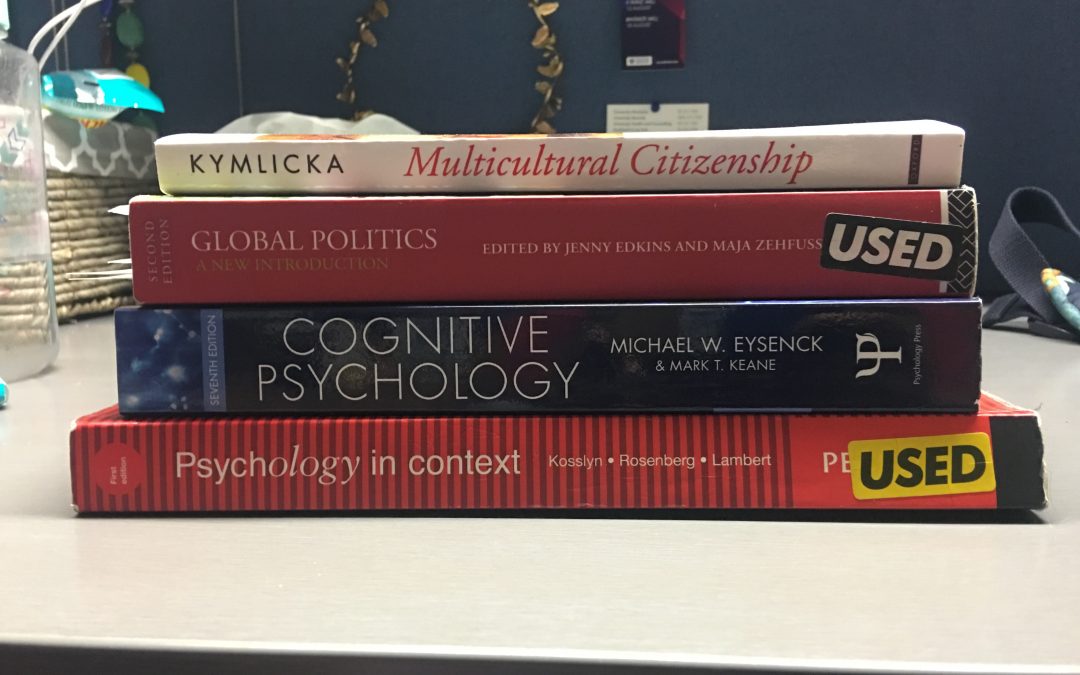I’m currently sitting in front of my gate at Shanghai International Airport, waiting to board my 15-hour flight to New York City.
With five hours to go until my plane arrives, what better opportunity than now to reminisce about the last month of exam preparation and subsequent test-taking that followed.
Like for everyone else, yes it was very stressful; there’s no doubt about it. Basically every night was spent at Kate, trying to teach myself material I’d neglected understanding the first time around, when they were taught in lectures.
What papers did I have final exams in?
– Psychology 109 – 50 multiple choice questions, open ended questions (2 hours)
– Philosophy 102 – 3 essays (2 hours)
– Politics 106 – 4 short answer questions, 2 essays (2 hours)
– SciGen 101G – 4 short answer questions with subquestions (2 hours)
Going into SciGen and Psychology, I felt pretty confident. For those exams, all I had to do was memorize a bunch of course material, which I’d started doing relatively early (a month in advance). It helped that the questions from past papers tend to repeat in these courses so revising those as well benefited me greatly.
The exams I couldn’t stop stressing over were for Philosophy and Politics. Essays are graded so subjectively; knowing how to structure your essay and proper punctuation is only half of the formula to getting a good grade. Unfortunately, I didn’t know what the second half consisted of.
Preparing for Politics was a quick fix though. The last week of lectures, our professor literally gave us the essay questions that would be on the exam!!!
Shout out to Dr. Thomas Gregory, you the real MVP.
I ended up drawing up an outline of how I wanted my answers to be structured and going to office hours to get my tutor to check it and tell me if I was on the right track. The week before the exam, I wrote out rough drafts for my essay answers and memorized them. Some professors wouldn’t recommend coming into an exam with an essay memorized, which makes sense, because you’re literally screwed if you draw a blank while in the testing center. But for me, doing so made me feel reassured that I would write down all the relevant information that I wanted to and since I already had a structure in mind, I wasn’t worried that I’d waffle.
Philosophy was more tricky though. It’s such a complex subject to begin with; literally every lecture would leave me questioning my own existence. Personally though, I feel like I put the most effort into preparing for this final. Right after mid-semester break, when the seventh week of university rolled around, I began writing an essay a week (based on essay questions from past exams) and going to office hours twice for advice on how to improve my writing. When it was time for me to finally take the exam, I was adequately prepared in writing philosophy essays.
As you can see, there’s no single method for preparing for finals. Rather, it’s a mixture of various approaches and a lot of trial and error. You just have to find what works for you.
“I learned the value of hard work by working hard” – Margaret Mead


